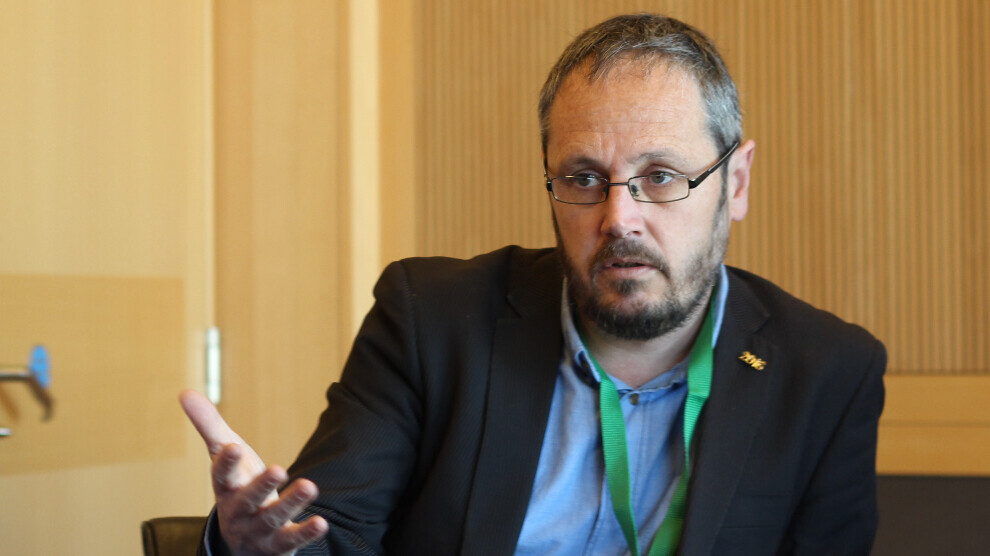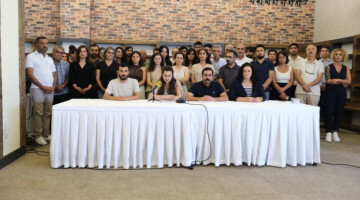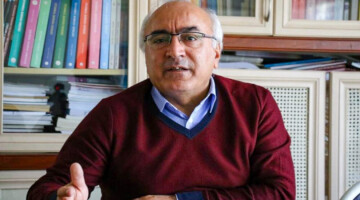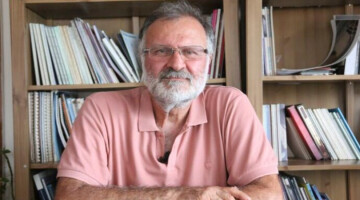On 16 September, more than 1,500 international lawyers and legal institutions sent a letter to the Turkish Ministry of Justice for Kurdish People's Leader Abdullah Öcalan. In the letter, it was pointed out that it is against the law that Abdullah Öcalan and Ömer Hayri Konar, Hamili Yıldırım and Veysi Aktaş, who have been held under isolation in İmralı F Type High Security Prison and have not been heard from for 43 months, are not allowed to meet with their lawyers. The letter demanded that the signatory lawyers go to İmralı and that Abdullah Öcalan be allowed to see his lawyers. Urko Aiartza, Co-President of the European Association of Lawyers for Democracy and World Human Rights (ELDH), who is among the applicants, answered ANF's questions.
Urko Aiartza said that the isolation of Kurdish leader Abdullah Öcalan violates the Nelson Mandela Rules and that the response of international organisations such as the CPT has been inadequate, raising concerns about their ability to uphold international human rights standards in politically charged cases.
As a lawyer, how do you interpret the practices against Mr Abdullah Öcalan?
The conditions in which Mr Abdullah Öcalan is being held - in particular the severe restrictions on access to both his legal representation and his family - are a clear violation of international human rights standards. The fact that his lawyers have been able to meet with him only 5 times in 13 years (2011-2024) is extremely worrying. The UN Nelson Mandela Rules emphasise the importance of regular communication between prisoners and their legal representatives, which is fundamental to ensuring fair treatment and defence. Furthermore, the prolonged isolation, the denial of access to his family and the absence of any concrete evidence of his well-being for 43 months amount to torture or cruel, inhuman or degrading treatment under international law. It is particularly worrying given Öcalan's political importance and the Turkish state's historical treatment of political prisoners. Öcalan's situation is a violation of the right to life, the right to access to a lawyer and the right to humane treatment guaranteed by international human rights treaties.
How do you assess the attitude of international organisations such as the CPT and the Council of Europe?
These organisations have an important role in monitoring prison conditions and ensuring that countries comply with their international obligations. The fact that Abdullah Öcalan's legal team has publicly stated that they have been unable to communicate with him for 43 months raises serious questions about the effectiveness and timing of the CPT's interventions. The CPT has visited İmralı Island Prison in the past and produced reports recognising that conditions were problematic. However, the lack of any significant change in the situation suggests that these organisations have failed to exert sufficient pressure on the Turkish authorities. Moreover, the silence or inadequate response of international organisations can be interpreted as a failure to protect the rights of political prisoners and to comply with international human rights standards. The lack of Öcalan’s access to legal representation and family further undermines the credibility of international monitoring mechanisms, raising questions about their political independence and the effectiveness of their intervention in politically sensitive cases.
Do you think the Mandela Rules are being implemented and are they adequate in today's context?
The Nelson Mandela Rules are an internationally recognised standard for the treatment of prisoners, emphasising the importance of humane treatment, including access to medical care, legal representation and prohibition of prolonged isolation or torture. It is clear that these rules are not applied in Abdullah Öcalan's case. The restrictions on his access to his lawyers and family, coupled with concerns about his health and prolonged periods of incommunicado detention, indicate a systematic violation of the Mandela Rules.
While the Mandela Rules represent a strong and comprehensive set of principles, its implementation remains a critical challenge, particularly in politically sensitive contexts. The Mandela Rules itself are sufficient to set minimum standards for the treatment of prisoners, but the problem lies in the lack of strong implementation mechanisms and the political will to enforce them, particularly for political prisoners such as Öcalan. International organisations should strengthen their capacity to effectively implement these rules.















